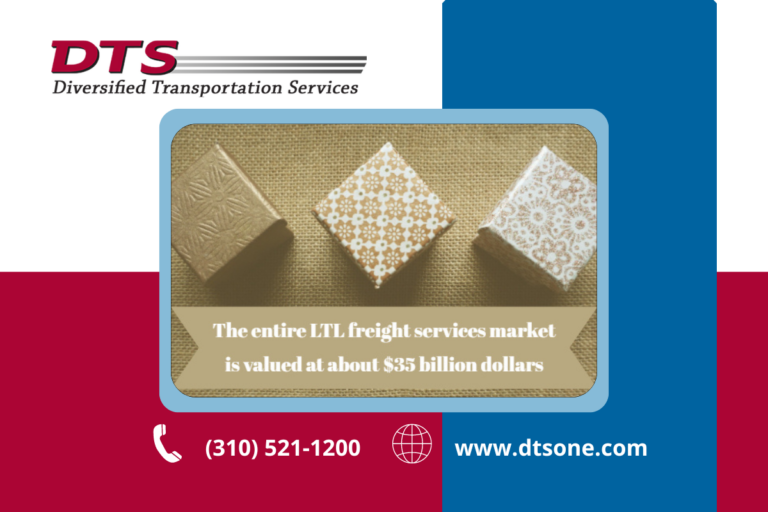
The entire LTL freight services market is valued at about $35 billion dollars. That's a lot of freight being moved back and forth. But what exactly is LTL shipping, and what's the difference between LTL and truckload freight shipping?
Deciding between less-than-truckload shipping and full-truckload shipping can be a difficult choice when you aren't sure what all your options are. Many factors are involved in choosing shipping services, and by assessing each element involved in this decision, you can move toward whichever method is going to be most efficient for your company's particular needs.
Among these elements to consider are freight dimensions (length, width, and height), freight classification, and any special services needed.
The following are some of the fundamental differences between truckload freight shipping and LTL shipping. By learning the different options and their details, you'll be prepared to book your truckload freight shipping services with confidence.
Truckload and less than truckload are both good options, depending on your specific requirements. But what exactly are they?
When transport freight does not require the entire space in a trailer, that shipping method is known as less than truckload shipping. On the other hand, when a shipment takes up the full weight or space limit of the truck, it's referred to as full truckload shipping. One option will be suited to your needs better than the other depending on your freight requirements.
If you own a small shop, you should rarely need the help of full truckload freight shipping. Large warehouses, on the other hand, might need a larger truck to carry their freight.
Here's a quick guide to help you decide which option you should choose:
Less than truckload shipping lets multiple shipping clients share space on the same truck. This makes it a more economical and efficient option, especially for trucking companies, because multiple businesses are paying for the space on the trailer. This option is ideal for companies with less than 15,000 pounds of freight to ship.
In order to keep shipped items safe during transit, it's important to consolidate all shipped goods into crated or pallet iced packages. This is especially important when the goods will be shipped a long way, and have to be moved from one trailer to another at some point along their journey.
Shippers will use full truckload shipping when they have to ship enough items to fill an entire trailer. However, they might also choose full truckload shipping just because they prefer to have an entire truck dedicated to their goods, because the freight is time-sensitive, or because the freight weight makes it a more cost-effective solution than LTL.
With full truckload shipping, shipments generally only go to one destination, so delivery estimates tend to be faster and more accurate than they are for LTL shipping. There is also a decreased likelihood of items being damaged in transit during full truckload shipping because there isn't as much handling involved at multiple stops.
Full truckload shipping will generally be chosen when the shipper's freight weighs more than 15,000 pounds, or when they have over 10 pallets of goods to deliver.
Whether you choose TL or LTL shipping, there are pros and cons to either method. However, one option will usually come out on top depending on the weight and size of the freight you need to be shipped. These characteristic differences may seem small but they can make or break the bank depending on the size of your store. When you're ready to choose a shipping option that works for you, rely on DTS One.
Whether you're a company looking to improve one facet of your supply chain, your entire supply chain, or simply looking for a transportation and logistics consultation, we can help.